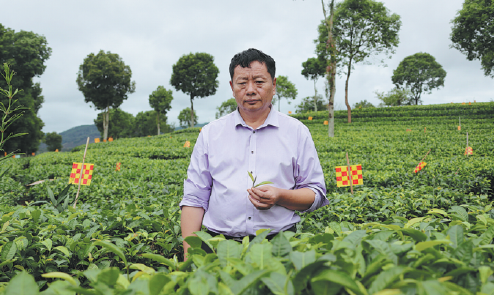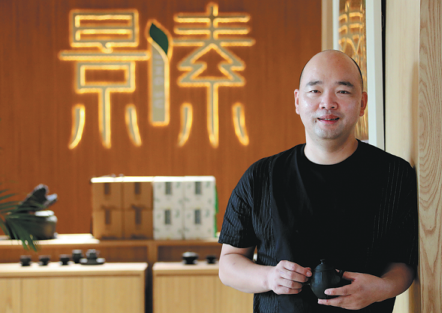Organic innovation helps Pu'er brew business success

Workers sort and package tea at a plant in Pu'er, Yunnan province, earlier this month. WANG JING/CHINA DAILY
The city is one of the acknowledged leaders in the field of tea cultivation.
In 2012, the southwestern province of Yunnan experienced a severe drought that caused Pu'er city's tea plantations to become infested by a type of moth that devoured the leaves and stems of the trees.
The pest was particularly rampant in Dong Zuxiang's 134-hectare plantation because he had refused to use pesticides on his land.
To avoid disaster, Dong mobilized more than 600 people, including local workers, family members and students on their summer holiday, to catch the insects by hand.
For every bug caught, they received payment of 5 fen, a now little-used subdivision of the yuan.
Within a month, the team had caught more than 6.4 million moths, costing Dong 320,000 yuan ($49,000).
Today, catching the moths by hand remains a routine measure every year, as the number of insects rises in March and September.
However, the refusal to use pesticides has raised the quality of the tea and helped Dong's company become a leader in Pu'er's organic tea industry. The city is famous for cultivation and production of the tea of the same name.
The Lancang, aka the Mekong, River runs through the city, and roughly 73 percent of Simao, the central district, is covered by forest, giving the region rich biodiversity and natural resources.
In November, a herd of wild elephants, whose migration to the far north has captured global attention, arrived in Pu'er and settled there for around five months before continuing their journey.
The local people believed that the good environment attracted the elephants, who made themselves comfortable in the region.
The organic tea industry is the city's calling card, while the zero-fertilizer, zero-pesticide approach used by local farmers has helped maintain the green environment and boost the economy.

Dong Zuxiang checks leaves growing in his tea garden in Pu'er. WANG JING/CHINA DAILY
Dong was one of the first farmers to adopt organic tea cultivation.
Growing up in a peasant family, Dong said when he visited his neighbor's home as a little boy, the hosts would not let him drink the tea they grew for sale, but would instead offer the tea they grew in their own garden.
"They told me the tea slated for sale had been treated with pesticides and was not safe," he said.
This experience prompted the idea of growing 100 percent pesticide-free tea. "First, you have to feel safe drinking the tea yourself, and then consumers will feel safe buying your product. This is the only way to develop your business in a sustainable way," he said.
Dong started the business in 1998 and set stringent production standards.
To control pests without using chemicals, he introduced 80,000 brightly colored glue boards-which attracted the insects, who then stuck to the glue-installed 125 insect traps and kept free-range chickens to eat them.
Plantation workers also regularly sweep electric mosquito swatters over the tops of tea trees to kill the flying insects.
Dong also planted other types of trees to create a balanced ecosystem in the tea garden and help reduce the occurrence of disease through coexistence.
In 2008, Dong's tea was certified as organic by authorities in China, the European Union, the United States and Japan. Moreover, the provincial government has designated his brand, Zuxiang Tea, as one of Yunnan's top 10 famous teas every year since 2018.

He Haishan holds a traditional teapot as he stands outside his company's offices in Pu'er. WANG JING/CHINA DAILY
Based on the thriving organic tea industry, other growers have explored ways of raising their products to a higher level.
In addition to Pu'er, a lot of white tea is grown in the city. He Haishan, founder of Jingsu Tea Co, devised processing techniques that largely helped improve the taste and quality of white tea.
Traditional processing consists of just two steps, He said: picking the tea buds and drying them.
"Many people think that making it is very simple. In fact, it is not at all easy to make good white tea," he said.
To produce the best tea, He conducted numerous experiments and used 3 metric tons of leaves to identify the best temperature and humidity for fermentation to achieve a high-quality product.
His research revealed that to obtain the best performance of the chemicals in tea leaves, the optimum processing temperature must be 21 C to 26 C, and the moisture content of the leaves has to be maintained at about 6 percent.
Launched in 2016, the company is still young, but He has recognized the huge potential of white tea.
"The strains of white tea we selected are produced by the asexual reproduction method, and they have the potential for mass production. That will help drive the development of the organic tea industry in a new direction," he said.